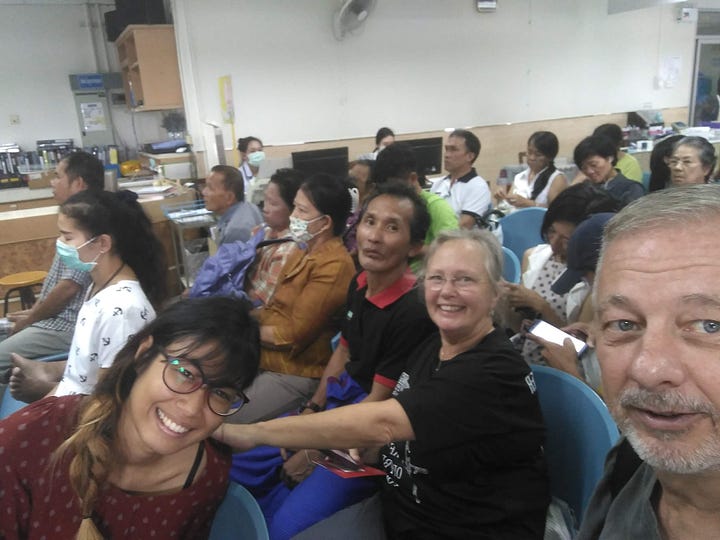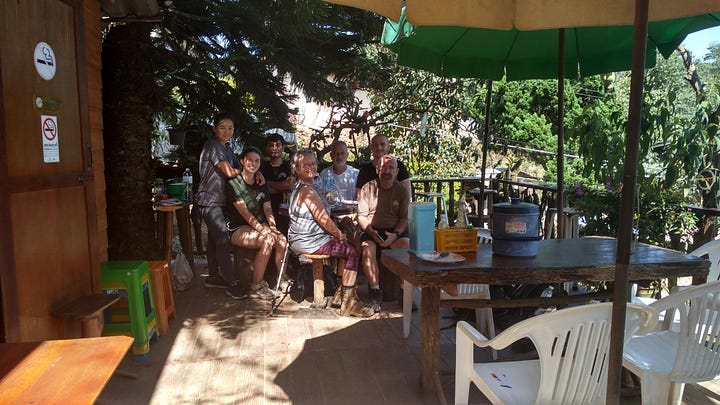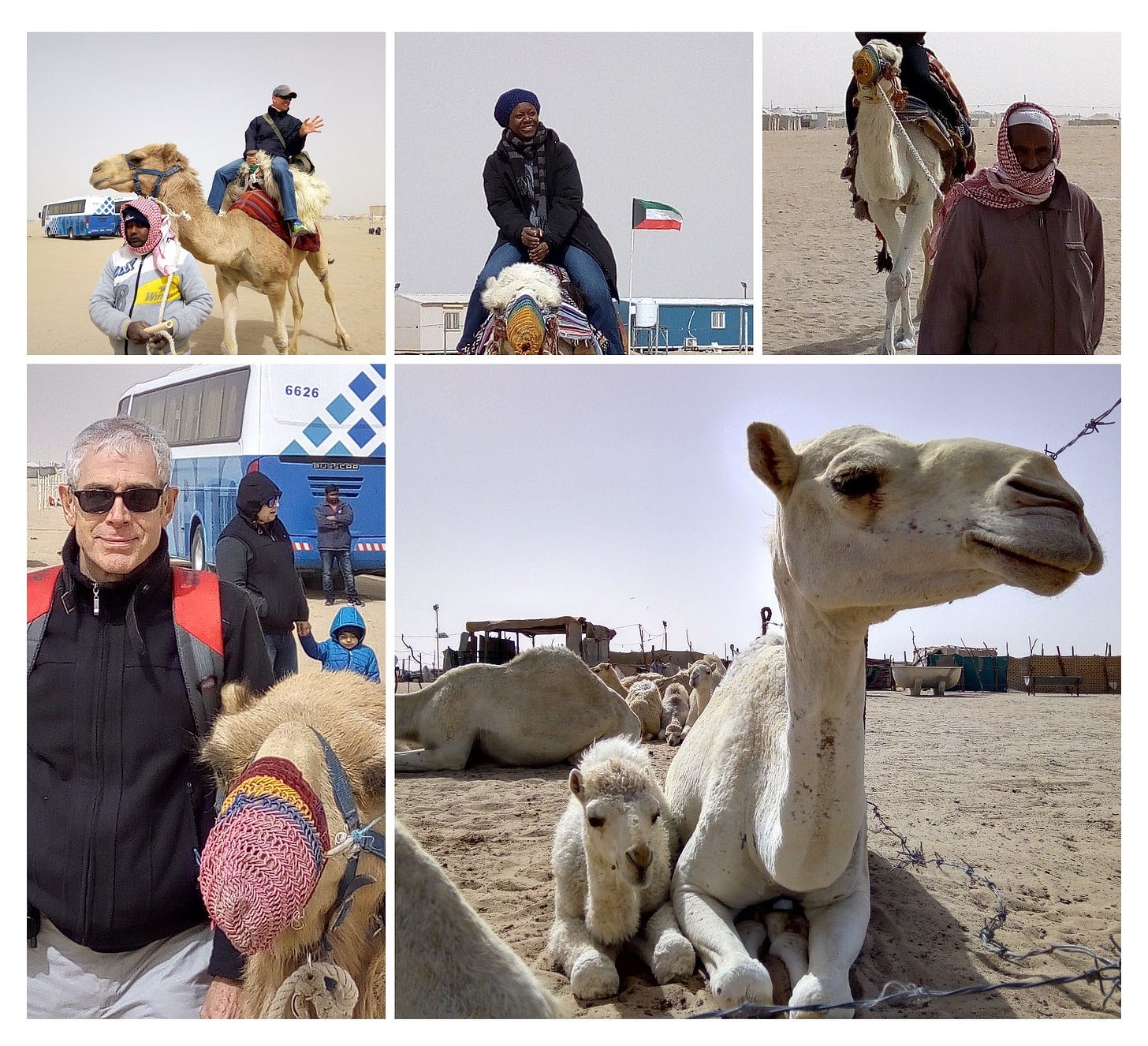Lost in Translation: Friendship Lessons from the Middle East
Finding Community and Connection in a Different Culture
Living and working in countries like Kuwait, Saudi Arabia, and Egypt has profoundly influenced my perspective on life and relationships. Since I moved back to the US, I have wanted to return to the Middle East. Don't think it's a grass is greener on the other side phenomena. At least, I don't believe so. I have a real longing to return to the Middle East. Living in the Middle East showed me the value of community, inclusiveness, and genuine social interactions. Reflecting on these memories, I realize how life in the Middle East felt so fulfilling and connected. Here are some thoughts on why life in the Middle East felt much more enriching.
Colorful Indian Festival in Kuwait
Ease of Making Friends
In the Middle East, forming friendships was effortless. Whether with fellow expats or locals, camaraderie and openness made it easy to connect. People were welcoming and eager to build new relationships. It didn't matter if you were single or married; everyone wanted to create a tight-knit community.




I once encountered a Filipina woman who expressed feelings of intense loneliness after relocating to the United States. Remarkably, even though she had resided in a sizable residential area for over two years, she had little to no interaction with her neighbors. Her situation struck a chord with me, reminiscent of the isolation portrayed in the film "The Truman Show." This sense of disconnection was something I, too, had encountered in various places before ultimately discovering a sense of community in the Middle East. The impact of our shared experiences stayed with me long after our conversation.
Social Activities, Societal Attitudes, and the Role of Alcohol
In the Middle East, social life was vibrant and diverse. Quality time with friends often involved coffee, dinners, or group activities. Late-night walks along the corniche in Kuwait and Egypt were common, where people would chat and socialize without needing alcohol. These interactions were genuine and fulfilling, focusing on building relationships rather than superficial connections.
Societal attitudes in the Middle East seemed more focused on building relationships and enjoying each other's company. Discussions rarely centered around divisive topics like racism, age, or gender. There was a strong emphasis on forming genuine connections and fostering a sense of belonging. Not drinking was never an issue. Social activities involved tea, coffee, shisha, or walks. Alcohol was rarely central to social gatherings, which fostered an environment where genuine relationships could thrive without the need for loud, alcohol-centered events.
Currently, I am living in the USA. Living in an apartment building with a large Arabic population has given me a taste of the community spirit I miss from the Middle East. These frequent, alcohol-free gatherings involve watching TV, sharing food, and simply talking, reminiscent of my experiences abroad.
Family Dynamics
One of the most striking differences I observed in the Middle East was the strong family bonds. Families often lived together in the same house, with each generation occupying a different floor. There was a deep sense of responsibility for caring for elderly family members. This close-knit family structure provided a solid support system and a strong sense of belonging. This difference in family dynamics is another layer that adds to the understanding of community I miss from my time in the Middle East.
Volunteering in Thailand
When I volunteered in Thailand with an American Christian human rights organization, I observed a notable contrast to my experiences in the Middle East. While the organization's mission attracted a strong sense of community, I found that this communal spirit was primarily focused on achieving the group's shared goals rather than fostering personal connections among volunteers. This emphasis on a collective mission may be reflective of broader cultural values in the United States, where individuals often prioritize specific objectives over personal relationships. Additionally, the constant influx of hundreds of volunteers each year may have contributed to the organization's more task-oriented environment. Despite these differences, it's important to note that the organization's commitment to its mission was unwavering, and its work was impactful.




Personal Reflections
I recognize that part of my struggle to build connections in the USA might stem from feeling like a fish out of water. In many ways, I experience a sense of being "lost in translation" here, in the USA, similar to what Bill Murray's character felt in Japan. I often feel uncertain about who I am in this environment and tend to retreat if I perceive a negative reaction from someone. This can create a barrier to forming deeper connections and might explain why making friends in the USA feels more difficult. In contrast, I feel at home overseas, where social interactions come more naturally to me.
Conclusion
My experiences in the Middle East offered a sense of community and vibrant social life that I have found deeply fulfilling. These reflections underscore the value of inclusiveness and open-mindedness in building solid and meaningful connections. Focusing on these principles can create more welcoming and connected communities wherever we go.
These observations are based on my personal experiences and may not reflect everyone's experiences. Some may find it easy to make friends anywhere, while others may face challenges like mine. This is my perspective, and I am always open to learning and adapting to improve my social connections.



